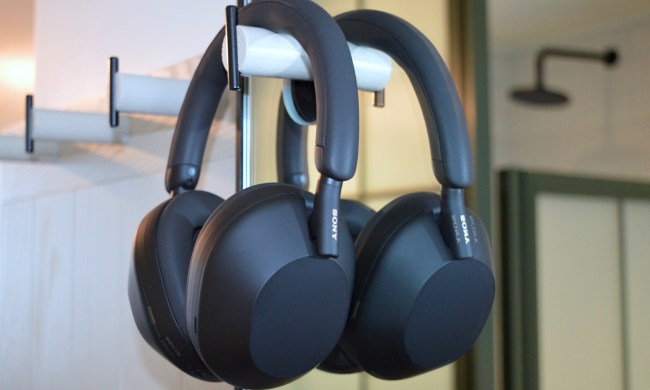
Despite the massive presence of AI, automotive, and robotic technologies, CES is still, at its core, a gadget show. And one of the most interesting gadgets at CES 2025 was the Olight Ostation X. The Ostation X is a AA battery charger, but it might be the smartest and most convenient charger ever created. If you’ve found yourself hopelessly addicted to disposable alkaline batteries, this gadget could be your path back to the world of recharging.

It’s not that we don’t like rechargeable batteries, it’s just that they’re kind of a hassle. You know the drill: Your batteries die, you need to find the charger, then you make sure you insert similar battery types, then you plug it in and wait anywhere from one to four hours depending on how depleted the cells are and how smart your charger is. In the meantime, that device you were trying to use is useless. You also know what comes next: You reach for a fresh alkaline battery because who has time to wait?
Eventually, you find yourself using disposables more often than rechargeables, which costs money and needlessly adds material to our landfills (unless you have a convenient way to recycle them).
The $120 Ostation X, which will be available in February, tries to eliminate the hassle of recharging by making the entire process automatic. When your rechargeable batteries die, you drop them into the Ostation X’s top hopper. That’s it.
The Ostation X automatically runs your AA batteries through a testing and charging cycle, up to four at a time, and drops them in its bottom hopper when the cycle is complete. When you need a fresh cell, you press the lever on the front of the dispenser and out rolls a charged battery. With a 32-battery storage capacity, you may never need to reach for an alkaline cell ever again.
The concept behind the Ostation X is so simple — so obvious — you might be wondering why no one has done it before. Turns out, there were a few technical hurdles to overcome.

What if you drop your dead batteries in facing the wrong way? Doesn’t matter. The Ostation X can tell which way the battery is oriented and changes the polarity of its charging contacts to match. What if you accidentally drop an alkaline battery into the hopper? Doesn’t matter. The testing cycle can sense the voltage difference between disposable and rechargeable batteries and rejects alkalines into a special drawer. Same thing for rechargeable batteries that can no longer maintain an adequate level of power.
What if you mix nickel cadmium (Ni-Cd) and nickel metal hydride (Ni-MH) batteries? Totally fine — the four-cell charging bay treats each battery individually, although Olight recommends the use of Ni-MH cells because they’re better for the environment.
And it doesn’t even matter if batteries have different capacities or start their recharging cycle at different charge levels — the system can detect and adapt accordingly.

Olight says it also needed to do a lot of work to ensure that the Ostation X meets regulations for electrical safety. Overheating, overcharging, over-voltage, and over-current conditions can all pose risks, as can short-circuiting. The Ostation includes protections against all of them.
There’s a circular LED display on the front that shows the charging status for the four currently charging cells, and there’s also a companion app that will show you the same info as long as you’re within Bluetooth range of the Ostation X.

Olight also tells me that the Ostation X can be a bit noisy when charging — especially when you use its fast charging mode (as little as 2.5 hours for a full cycle) — so the app also lets you schedule when charging should take place.
The device runs off a 12-volt USB-C power supply, which Olight includes in the box. There’s a secondary USB-C port that can be used to daisy-chain additional Ostation Xs, or you can use it to charge pretty much any other gadget that uses USB-C. An optional wall mount will be available for $16.
I haven’t had a chance to try the Ostation X, so I can’t comment on how well it works — though it seems like a very well-thought-out product. The one area that gives me some pause is its internal mechanics.

The Ostation X uses a series of gears and a tiny conveyor belt to move batteries through the testing and charging cycle. The conveyor belt sorts bad cells (or alkalines) into the reject tray and transfers successfully charged cells into the bottom hopper.
Olight provides a two-year warranty on the Ostation X, but any time you have moving parts, you’re going to have wear and tear and, eventually, breakage. The company says it’s built to provide 4,500 charge cycles, which is the equivalent of about two years of regular use based on typical charging patterns (24 hours/four hours per charge cycle).
Then there’s the question of versatility. Olight is already working on a model that charges AAA cells, but at the moment there are no plans for a single Ostation X that can handle both sizes.
Editor’s note: Olight provided travel accommodations for the author at CES 2025 but had no editorial control over coverage.






